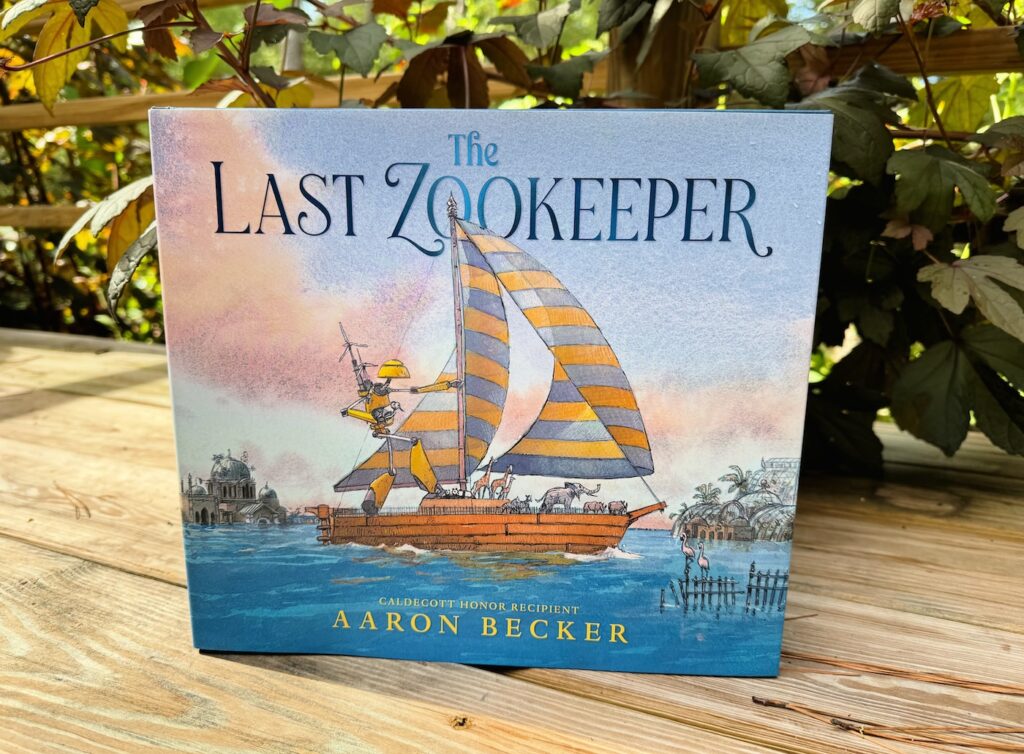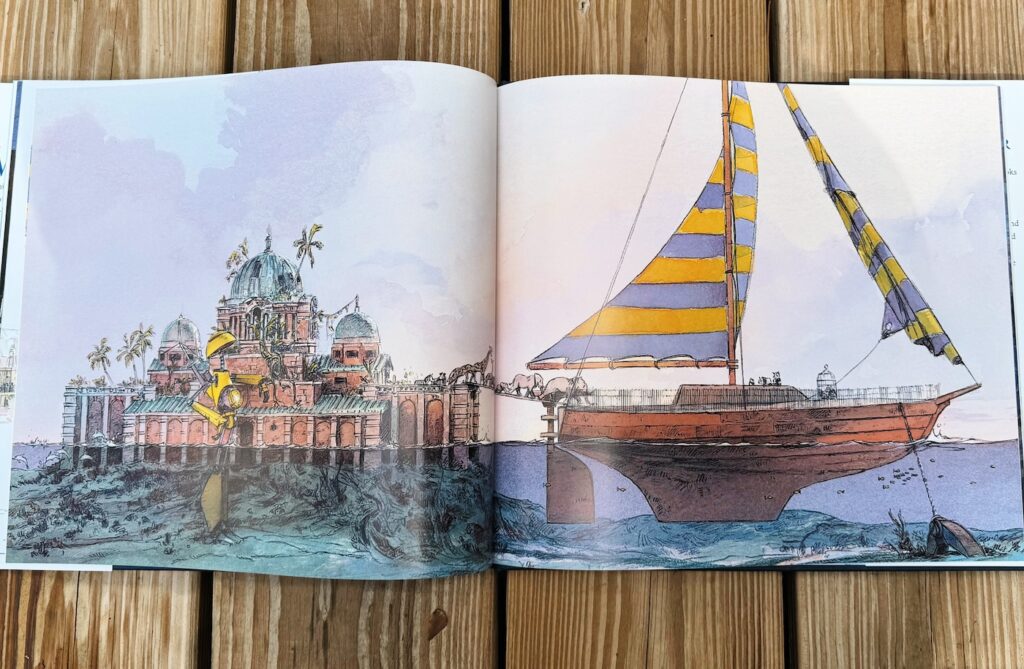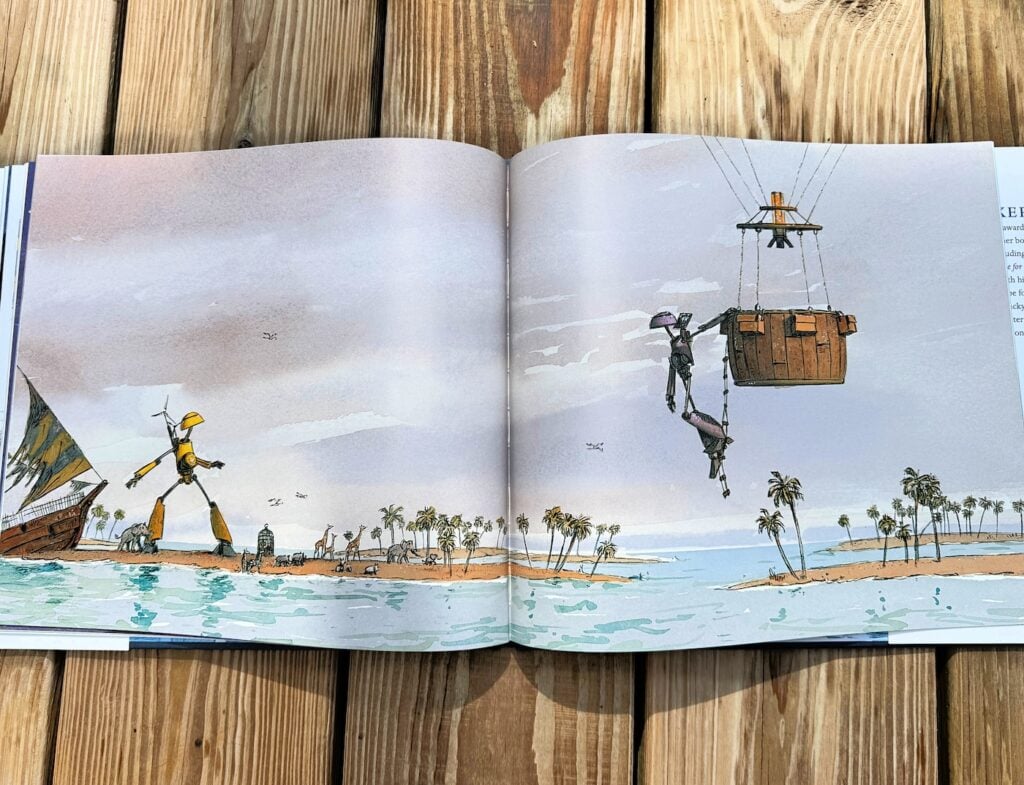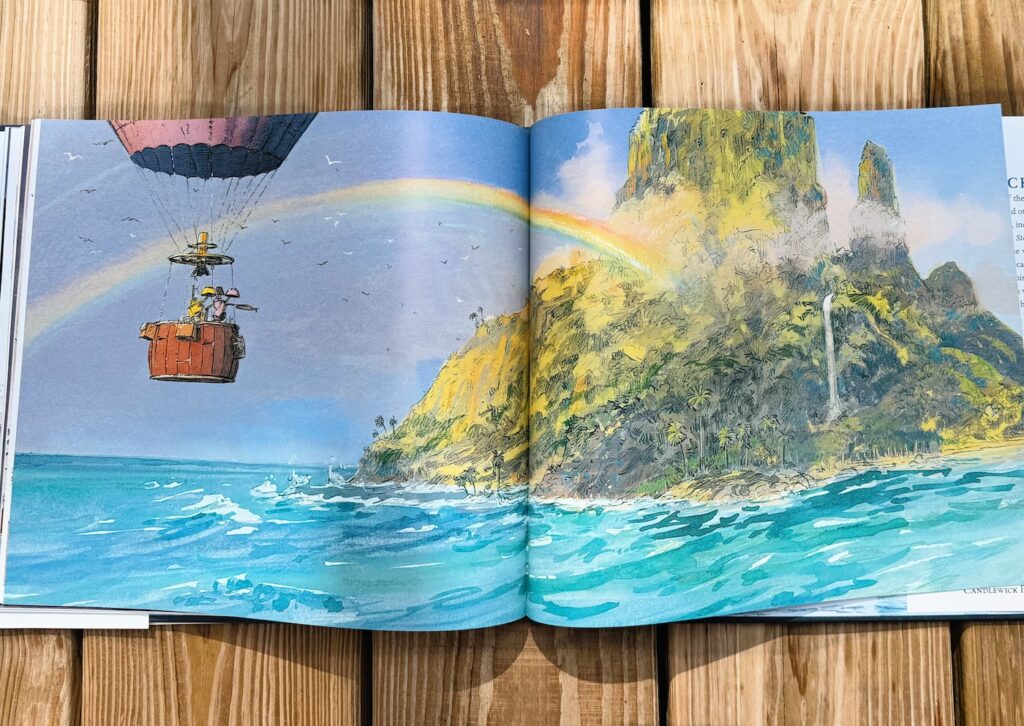“The Last Zookeeper” offers a futuristic look at nature and compassion
Aaron Becker’s The Last Zookeeper is a wordless picture book about a construction robot named NOA who rescues and cares for a group of abandoned zoo animals displaced by rising waters.

This book, for readers age 5-9, is a fascinating mix of science fiction and nature. The themes of climate change or whatever disaster caused the rising waters may not click with young children, but they’ll definitely understand the themes of care and compassion.
A Story That’s Open to Your Child’s Interpretation
Before we get into the review, I’d like to share a thought about the power of words (or lack of) in books.
When my youngest son was in Montessori preschool, if there was ever a time they couldn’t be on the playground, he would be “reading” books with his best friend. Because they couldn’t actually read yet, it was always entertaining:
“T-Rex slams Triceratops!”
“Oh no! Three pterodactyls just swooped in. Whose side will they fight on?”
“Triceratops backs T-Rex into a giant rock with his nose horn!”
Some days he would ask me to read to him before we left. But we quickly discovered the books were never as exciting as his imagination. Reciting stats like paleontologists think the T-Rex lived for 30 years is a lot less exciting to a four-year-old than narrating an epic dinosaur battle.
I bring up this example of how important illustrations can be because when our team first encountered The Last Zookeeper, we questioned how we could accurately review a wordless book. While there’s certainly a narrative to this story, it is quite open to interpretation.
Recalling the hundreds of illustrated books I’ve read for work or with my children, there’s almost always a richer story being told through the images. The illustrations are what makes so many characters beloved and endearing – especially to children.
The Last Zookeeper Has Ties to Both the Past and the Future
In this story, the Earth has flooded. The only signs of humankind are the waterlogged structures they left behind. Peeking out from the deluge are the remnants of a zoo, home to rare and endangered animals, survivors of long neglect.
Tender-hearted NOA is a construction robot who’s found new purpose as the caretaker of the zoo’s beleaguered inhabitants. Bracing for the next storm, NOA builds an ark from the wreckage in search of new land and a new home, only to discover something even more profound.
With boundless compassion and sweeping scenes of sea and sky punctuated by detailed wordless panels to pore over, Caldecott Honor–winning creator Aaron Beckerdelivers a timely and concrete message about the rewards of caring in even the most difficult of times that is sure to inspire the dreamers among us.

The main character NOA designs and builds an ark to rescue the abandoned animals. If your family is familiar with the biblical story of Noah’s Ark, you’ll notice the callbacks of the flood, the animals, and the rainbow.
NOA Bravely Faces Challenges to Save the Animals
NOA is the last of a crew of seawall construction machines, and in this area, we don’t see any humans. The robot prompts us to think of this as a future scenario with the flooding likely a result of climate change.
One night, NOA and the animals face a battering storm. This time NOA is also at risk. The next day we find a heart-wrenching scene of the animals and a shipwrecked NOA on a small, empty island. The animals gather around to support NOA.

Soon another robot appears from the sky. It greets NOA and helps gather the animals into its hot air balloon. They glide away, following the path or a rainbow, to a lush island of safety and survival.
The story beautifully shows the power of kindness and compassion. The only words in The Last Zookeeper are part of an opening quote by Jane Goodall:
Only if we understand, can we care.
Only if we care, will we help.
Only if we help, shall all be saved.

In this meaningful story, NOA inspires us all to understand, care, and help.
You can find The Last Zookeeper at Bookshop or Amazon.
More children’s book reviews and roundups:
STEM Books for Kids
Earth Day Books for Kids by Age
Maisy’s Planet Series Books
